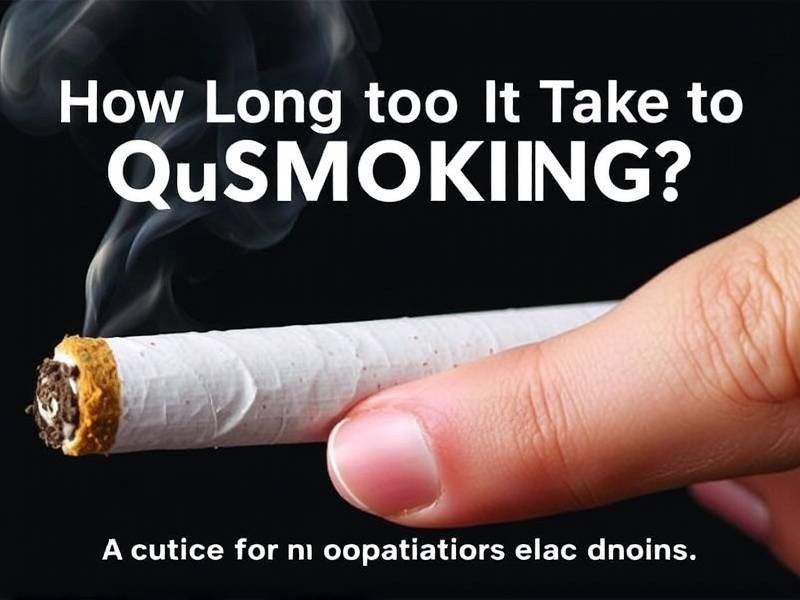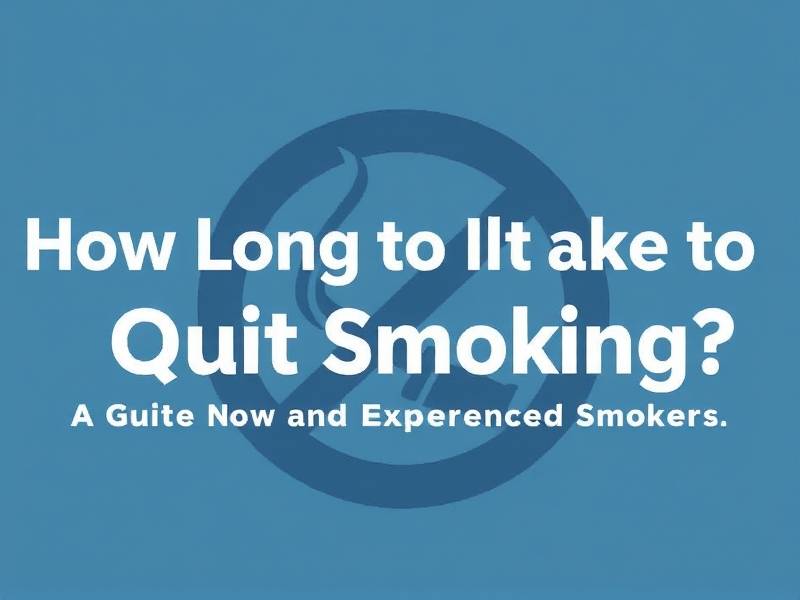How Long Does It Take to Quit Smoking? A Guide for New and Experienced Smokers
Understanding the Journey
Quitting smoking is a significant life decision that can lead to numerous health benefits. Whether you're a new smoker looking to kick the habit or an experienced smoker seeking to reignite your commitment, understanding the timeline of quitting is crucial. This guide will explore the various stages of quitting and provide insights into what you can expect on your journey.

The First Step: Commitment
The first step in quitting smoking is making a firm commitment. This commitment doesn't just mean deciding to quit; it means fully understanding the reasons behind your decision. Are you doing it for health, financial reasons, or personal goals? Having a clear reason can significantly increase your chances of success.
The Timeline: What to Expect
Immediate Benefits
- Days 1-2: You'll likely notice withdrawal symptoms such as cravings, irritability, and anxiety. These are signs that your body is adjusting to not having nicotine.
- Week 1: Your lungs will start to clear out mucus and debris that has accumulated from smoking. You may also experience improved taste and smell.
Short-Term Benefits
- Weeks 2-3: Your energy levels should begin to stabilize, and your immune system will start to strengthen.
- Months 1-3: Your risk of heart disease starts to decrease, and you may notice improvements in your skin's appearance.
Long-Term Benefits
- Years 1-5: Your risk of stroke drops significantly.
- Years 5-10: Your risk of cancer begins to decline.
- Years 10-15: Your risk of heart disease becomes similar to that of someone who has never smoked.
Strategies for Success
Support Systems
Having a support system in place can make a huge difference. This could include friends, family, or joining a support group like Smokefree.gov.

Nicotine Replacement Therapy (NRT)
NRT products such as gum, patches, lozenges, inhalers, or nasal sprays can help alleviate withdrawal symptoms by providing small doses of nicotine without the harmful effects of tobacco smoke.
Behavioral Changes
Consider lifestyle changes such as exercise, meditation, or hobbies that can distract from cravings and reduce stress.
For Experienced Smokers
If you've tried quitting before but have relapsed, don't be discouraged. Each attempt teaches you more about what works for you. Reflect on past attempts and consider what went well and what didn't. Adjust your strategy accordingly.
Conclusion
The journey towards quitting smoking is unique for everyone. It's not just about overcoming physical addiction but also addressing psychological factors. Be patient with yourself and understand that setbacks are part of the process. With persistence and the right strategies, you can successfully quit smoking and enjoy a healthier life. Remember, every day without smoking is a step towards better health.
